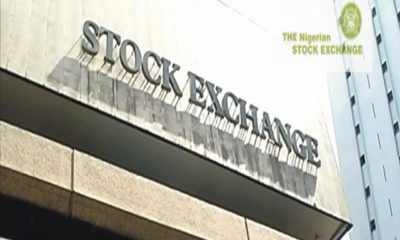The time is now for investors to top up their portfolios – in both value and growth stocks – ahead of a stronger than expected global economic rebound, says the CEO of one of the world’s largest independent financial advisory organisations.
The bold ‘call to action’ from Nigel Green, chief executive and founder of deVere Group, comes as U.S. stock futures for Tuesday are pointing higher after the Dow Jones rallied to an all-time intraday high on Monday, and as the tech-heavy Nasdaq steadied after a correction.
Meanwhile, Asia-Pacific markets had a mixed day of trading in Tuesday’s session and European markets are set to open broadly higher continuing a rally on Monday that saw Germany’s DAX climb 3.3% and hit a new intraday high.
Mr Green says: “This first half of 2021 is going to be a whole lot different for the markets, compared to 2020.
“This time last year, we were in the middle of a major and sudden global stock market crash due to the panic and uncertainty of the pandemic.
“Now, just 12 months later, due to the mass global vaccine rollouts, historic stimulus packages from governments – including the $1.9 trillion from the Biden administration for the world’s largest economy – easy money from central banks, and record levels of pent-up savings and demand, we’re looking at a major economic recovery.
“We can expect a stronger than had previously been expected global economic rebound this year, particularly in developed economies. We could see the fastest growth in decades.
“This is evidenced by the Federal Reserve – the world’s de facto central bank – pulling its three lending schemes to finish as scheduled at the end of March due to a lack of usage.”
So, with a likely economic boom on its way, where should investors invest?
The deVere CEO observes: “Much is being made of the phenomenon of ‘rotation.’ This is where a move into those sectors could benefit from higher inflation and an improving economy, such as financial, industrial and energy stocks, and out of tech stocks, for example, that boomed during extended lockdowns.
“However, I would suggest that it should not be a case of ‘either/or,’ and that a savvy investor should incorporate both value and growth stocks into their portfolios.
“In a post-pandemic era, it’s likely we’ll maintain some lockdown habits, like working from home more often, but we’ll also be back in the gym; we’ll travel and go to public events again, but we’ll also be more conscious of the environment and hygiene procedures.
“In short, value stocks are in revival mode, but does anyone suddenly seriously think Amazon, Google and Tesla are not companies of the future also?”
“As ever, the investor’s best tool to mitigate risk and seize opportunities is proper diversification.”
Mr Green concludes: “2021’s markets are already very different.
“Investors will not want to miss out on the major economic rebound and should top-up their portfolios, and ensure they are diversified, sooner rather than later.”


 Forex3 weeks ago
Forex3 weeks ago


 Naira2 weeks ago
Naira2 weeks ago
 Billionaire Watch2 weeks ago
Billionaire Watch2 weeks ago






 Naira3 weeks ago
Naira3 weeks ago






 Naira2 weeks ago
Naira2 weeks ago


 Naira1 week ago
Naira1 week ago




 Naira4 weeks ago
Naira4 weeks ago






 Naira1 week ago
Naira1 week ago





















